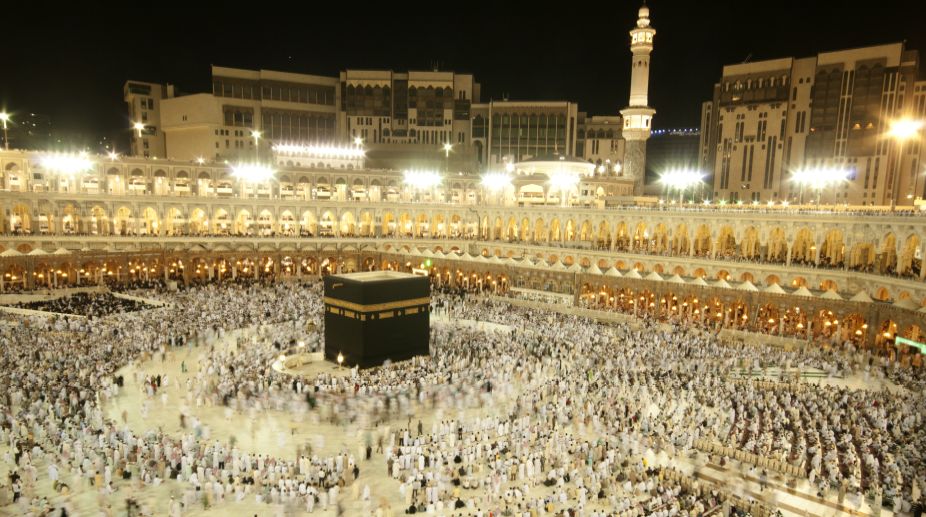Pak govt to save Rs 450 crore by abolishing Haj subsidy to pilgrims: Minister
The decision to abolish the Haj subsidy was taken during a federal cabinet meeting chaired by Prime Minister Imran Khan in Islamabad recently.

(Photo: Facebook)
A government-appointed panel for revising India’s Haj policy has recommended abolishing subsidy for the annual Muslim pilgrimage to Mekkah and Medina in Saudi Arabia besides allowing women devotees aged over 45 to travel in a group of at least four without a male relative.
The proposed Haj Policy 2018-22, submitted to Union Minister for Minority Affairs Mukhtar Abbas Naqvi here on Saturday, has been drafted in light of a 2012 Supreme Court direction to gradually reduce and completely remove the subsidy by 2022.
Advertisement
“It is advisable that the existing reduction plan (phasing out of subsidy) be followed,” according to the recommendations.
Advertisement
Haj subsidy is given to those who go through the Haj Committee of India and not through private operators. The subsidy amount has in the recent years been between Rs. 650-700 crore.
In a major reform, the draft policy proposes to partially quash an earlier rule that barred women Haj aspirants to travel without ‘mehram’, a close family member like husband, father or brother.
“Ladies above 45 years of age be allowed in a group of four or more to go for Haj without a mehram,” the panel recommended.
Women below 45, however, will have to be accompanied by a male family member, according to the draft policy that proposes to increase the quota for mehrams from 200 to 500.
Among other recommendations, made by the panel headed by former secretary Afzal Amanullah, are bringing down the number of embarkation points from which pilgrims can take flights to Saudi Arabia from the present 21 to nine.
The embarkation points for Haj pilgrims from next year would be New Delhi, Mumbai, Chennai, Kolkata, Bengaluru, Hyderabad, Lucknow, Kochi and Ahmedabad.
The distribution of quota between Haj Committee of India and private tour operators will be in the ratio of 70:30 — almost a five percent hike for the private players.
This year, the Haj quota for India — home to the world’s third largest Muslim population — was increased to 170,025, of which 125,025 was allocated to the Haj committee and 45,000 to the privater tour operators.
On the long-pending proposal to revive Haj pilgrimage by ship, Naqvi said the Saudi government would be consulted and then it would float an expression of interest to guage the market for such travel.
Independent tour operators say travel by ship would drastically reduce the cost per pilgrim to around Rs 60,000, making it affordable to a larger section of the population.
Regarding the distribution of Haj quota among states and union territories, the panel has recommended that it should be in the ratio of the Muslim population and in proportion to the number of applications received from each state or union territory.
Special quota for Haj pilgrims from Jammu and Kashmir will be increased from existing 1,500 to 2,000.
The reserved category of applicants in the 70-plus age group and fourth-timers has been abolished and they would go through the normal lottery.
Advertisement